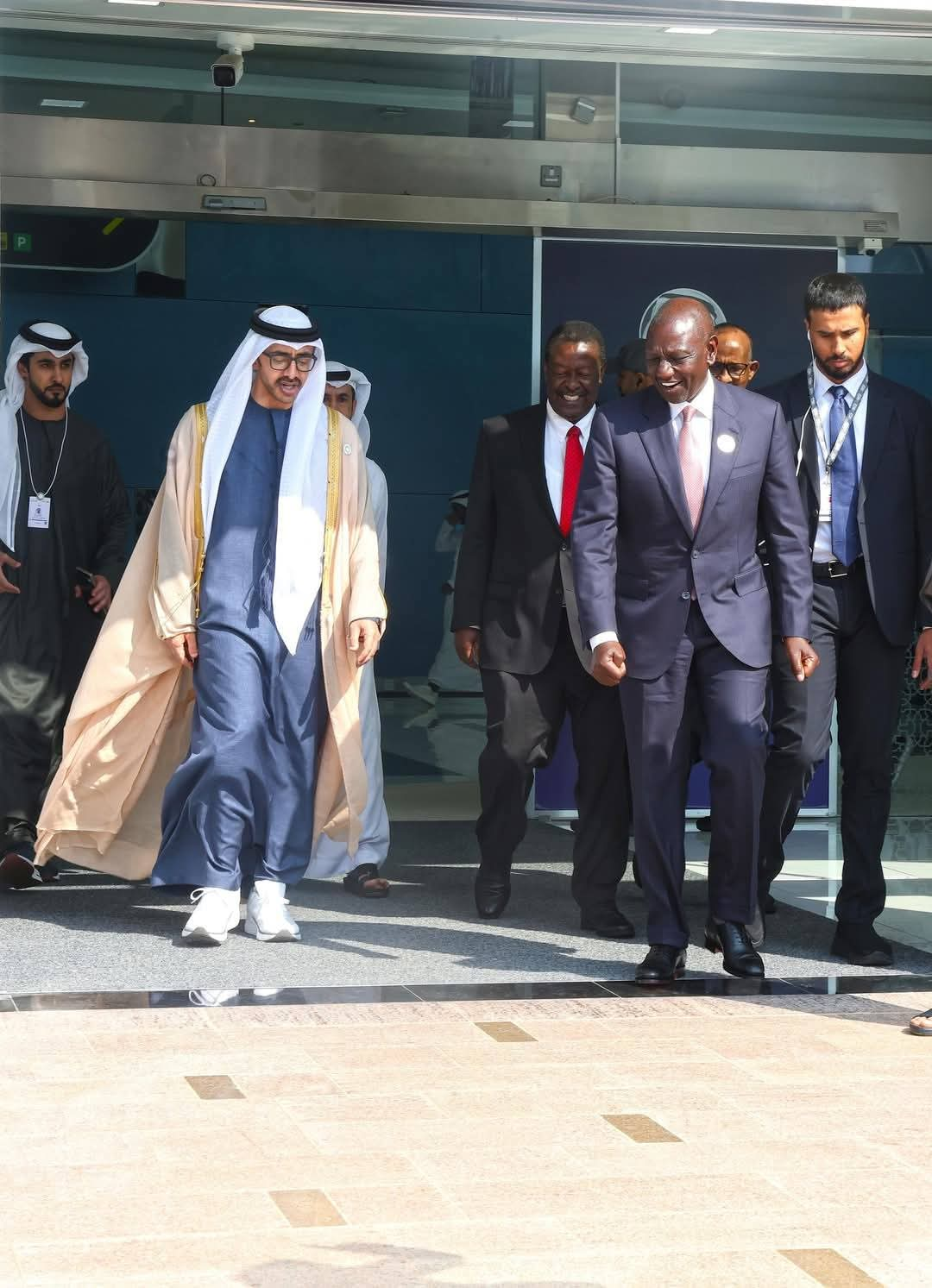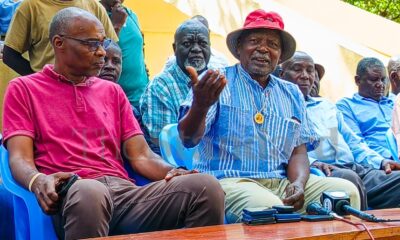Africa
Saudi-Qatar Condemnation of Sudan Parallel Government Deals Blow to Ruto Amid Regional Diplomacy Struggles

In a significant diplomatic setback for Kenyan President William Ruto, Saudi Arabia and Qatar—two of Kenya’s most critical Middle Eastern partners—have forcefully condemned efforts to establish a parallel government in Sudan led by the paramilitary Rapid Support Forces (RSF).
The rebuke undermines Kenya’s months-long support for the RSF-led initiative and exposes fractures in Ruto’s strategy to position Nairobi as a regional peacemaker.
The RSF, accused by the U.S. of committing genocide in Darfur, signed a controversial charter in Nairobi on June 25 alongside factions of the Sudan People’s Liberation Movement-North (SPLM-N).
The agreement aimed to create a secular, decentralized state governed from rebel-held territories, challenging Sudan’s internationally recognized military regime.
While Kenya has defended the charter as a pathway to stability, Saudi Arabia and Qatar this weekend denounced it as a destabilizing “illegitimate step” that risks fragmenting Sudan.
Saudi-Qatar Unity Against Kenyan-Backed Plan
In rare alignment, both Gulf powers issued statements rejecting external interference in Sudan and urging adherence to the Jeddah Declaration—a Saudi-U.S. brokered ceasefire framework from May 2023.
Saudi Arabia emphasized support for Sudan’s “official institutions,” while Qatar warned against “division” and called for inclusive dialogue.
Their stance directly contradicts Kenya’s tacit endorsement of the RSF’s parallel governance model, which critics argue legitimizes a group implicated in atrocities.
The Gulf states’ intervention carries weight: Saudi Arabia and Qatar are pivotal economic partners for Kenya, with bilateral trade exceeding $1.2 billion annually, largely in oil imports and infrastructure investments.
Riyadh’s Vision 2030 projects in Kenya and Qatar’s role as a key LNG supplier further amplify the stakes. Analysts suggest their disapproval could strain economic ties if Nairobi persists in backing the RSF.
Ruto’s Risky Gambit Backfires
President Ruto has positioned Kenya as a mediator in Sudan’s conflict, leveraging its role in the Intergovernmental Authority on Development (IGAD).
However, his government’s willingness to host RSF-linked talks has drawn scrutiny. The Nairobi charter signing, notably absent of RSF commander Mohamed Hamdan Daglo, was seen as an attempt to legitimize the paramilitary group’s territorial control.
“Kenya’s approach is now backfiring,” said Adjoa Anyimadu, a Horn of Africa analyst at Chatham House. “By aligning with the RSF, Ruto has alienated not just Sudan’s military but also powerful Gulf partners who prioritize stability over fragmentation.”
The U.S. determination of RSF-led genocide in Darfur and the UN’s warning that the charter risks “worsening” Sudan’s crisis further isolate Kenya. With Egypt and the UAE backing Sudan’s military regime, Ruto’s strategy appears increasingly untenable.
Regional Fallout and Economic Implications
The Gulf states’ condemnation complicates Kenya’s diplomatic balancing act. Saudi Arabia’s emphasis on the Jeddah Declaration—which Kenya initially supported—highlights contradictions in Nairobi’s stance.
Meanwhile, Qatar’s call for “inclusive dialogue” undermines Kenya’s bet on a factional solution.
Domestically, opposition figures have seized on the rift. “Ruto’s foreign policy is in disarray,” said Eugene Wamalwa, a former Defence cabinet secretary. “He’s jeopardizing strategic alliances for a flawed Sudan strategy.”
While Kenya’s Foreign Ministry has yet to respond publicly, insiders suggest a recalibration may be inevitable. “The Gulf’s message is clear: drop the RSF or face consequences,” a Nairobi-based diplomat told The EastAfrican.
The crisis underscores the fragility of Ruto’s ambitions to elevate Kenya as a continental power broker. With Sudan’s army advancing on Khartoum and the RSF seeking international legitimacy, Nairobi’s isolation risks diminishing its influence in IGAD and African Union forums.
As pressure mounts, Ruto faces a choice: double down on a controversial alliance or pivot to salvage relations with Riyadh and Doha. Either way, the blow from the Gulf marks a pivotal moment in his presidency—one where regional diplomacy and economic pragmatism collide.
Kenya Insights allows guest blogging, if you want to be published on Kenya’s most authoritative and accurate blog, have an expose, news TIPS, story angles, human interest stories, drop us an email on [email protected] or via Telegram
-

 Business2 weeks ago
Business2 weeks agobetPawa Empire Crumbles: Mr Eazi’s Betting Gambit Unravels Amid Partner’s Shadowy Deals
-

 Business1 week ago
Business1 week agoMinnesota Fraud, Rice Saga, Medical Equipment Deal: Why BBS Mall Owner Abdiweli Hassan is Becoming The Face of Controversial Somali Businessman in Nairobi
-

 News1 week ago
News1 week agoDCI Probes Meridian Equator Hospital After Botched Procedure That Killed a Lawyer
-

 Politics1 week ago
Politics1 week agoYour Excellency! How Ida’s New Job Title From Ruto’s Envoy Job Is Likely to Impact Luo Politics Post Raila
-

 Investigations2 weeks ago
Investigations2 weeks agoEXPOSED: SHA Officials Approve Higher Payments for Family, Friends as Poor Patients Pay Out of Pocket
-

 News1 week ago
News1 week agoKenya Stares At Health Catastrophe As US Abandons WHO, Threatens Billions In Disease Fighting Programmes
-

 Business1 day ago
Business1 day agoCooking Fuel Firm Koko Collapses After Govt Blocks Sh23bn Carbon Deal
-

 Politics2 weeks ago
Politics2 weeks agoJaramogi Clan Tells Raila Jr, Winnie Against Disrespecting Their Uncle Oburu, Warns of Curses
















